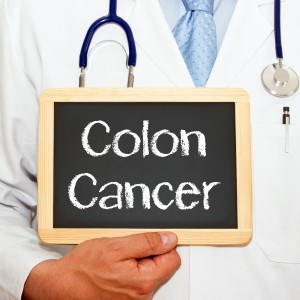 An expert panel recently released a clinical practice guideline draft for the assessment of molecular markers in patients with primary or metastatic colorectal cancer. The document is entitled “Guideline on the Evaluation of Molecular Markers for Colorectal Cancer Expert Panel Draft Recommendations Summary” and was sponsored by the American Society for Clinical Pathology (ASCP), the College of American Pathologists (CAP), the Association for Molecular Pathology (AMP) and the American Society of Clinical Oncology (ASCO). The guidelines are available online for public comment between March 30 and April 22, 2015, and all comments received will be considered and evaluated by the panel of experts.
An expert panel recently released a clinical practice guideline draft for the assessment of molecular markers in patients with primary or metastatic colorectal cancer. The document is entitled “Guideline on the Evaluation of Molecular Markers for Colorectal Cancer Expert Panel Draft Recommendations Summary” and was sponsored by the American Society for Clinical Pathology (ASCP), the College of American Pathologists (CAP), the Association for Molecular Pathology (AMP) and the American Society of Clinical Oncology (ASCO). The guidelines are available online for public comment between March 30 and April 22, 2015, and all comments received will be considered and evaluated by the panel of experts.
The guidelines were designed to help establish standard molecular marker testing to guide targeted therapies and advance personalized care for patients with colorectal cancer. “By bringing together four key organizations, all with substantial interest in treatment of colorectal cancer, we have addressed multiple elements of the patient care continuum,” said Dr. Wayne W. Grody, project co-chair on behalf of ASCP in a news release. “While we didn’t focus on a selected set of molecular markers, we considered the overall plan-of-care from collection of tissue samples to diagnostics, treatment, and follow-up.”
“While other colorectal cancer biomarker guidelines have been published, they tend to focus on one marker or a small panel of markers for one specific clinical use, unlike the collaborative multidisciplinary approach for this guideline,” explained Dr. Stanley R. Hamilton, project co-chair on behalf of CAP. “This guideline addresses all current molecular markers that can impact treatment decisions for patients with colorectal cancer. To date, there isn’t an evidence-based guideline that’s quite as all-encompassing and patient-centered as this one.”
The four co-chairs representing each of the four organizations involved in this project consulted more than 25 experts in different subjects, namely oncologists, pathologists and patient advocates to draft the recommendation and guidelines present in the document, with the main goal of optimizing patient care and improving disease outcome.
The group expects to receive input from scientists, physicians, patients, patient advocates, non-profit organizations, government agencies and members of the general public in order to improve their recommendations. “Anyone who may be affected by or play a role in the application of the guideline is encouraged to provide comments,” said Dr. Antonia R. Sepulveda, project co-chair on behalf of AMP. “From the onset, we have adhered to the Institute of Medicine’s Standards for Developing Trustworthy Clinical Practice Guidelines, which includes a dedicated external review period.”
In terms of possible future findings in colorectal cancer, “Given the rapid evolution of the field, we have ‘future proofed’ the document with a research section that acknowledges molecular markers and tests on the horizon,” added Dr. Carmen Allegra, project co-chair on behalf of ASCO. “We intend to review these recommendations regularly and will update the guidance document as necessary.”
The final guidance document is expected to be published by the end of the year. If you are interested in providing input for these guidelines, please do so here.


